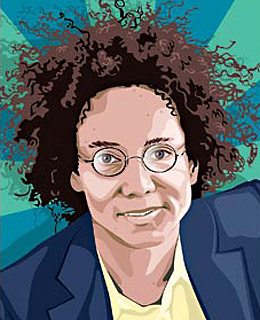
How did Paul Revere's ride launch the American Revolution? Why did the crime rate plunge in New York City in the 1990s? What makes people choose Coke over Pepsi? Why do great athletes choke? To most of us, riddles like those are mostly quotidian curiosities, the kinds of things you might wonder about while stuck in traffic or waiting for a train to arrive. But to Malcolm Gladwell, life's minor mysteries contain the keys to understanding how the world works. In the pages of the New Yorker and in his two books, The Tipping Point and Blink, Gladwell has sought to explain everything from the comeback of Hush Puppies shoes to the failure of Warren Harding's presidency. Gladwell's effortless prose and knack for storytelling have made him the U.S.'s leading pop sociologist, a writer who manages to make his work as relevant to CEOs as it is to soldiers. It's no wonder that The Tipping Point has sold some 800,000 copies worldwide, while Blink, released earlier this year, remains atop most best-seller lists.
Gladwell, 41, was born to Jamaican and English parents, grew up in Canada and lives in New York — which helps explain his ability to find connections among disparate subjects. (In a single chapter of Blink, he considers a Pentagon war game, new methods for diagnosing heart disease and golfer Greg Norman's collapse at the 1996 Masters.) Gladwell is at his deftest when demonstrating the practical applications of cutting-edge academic scholarship. "I'm an emissary from other worlds," he says. Thankfully, he's here to help make sense of ours.
From the Archive
Jumping to Conclusions: Think fast! Malcolm Gladwell argues that snap decisions can be better than slow, thoughtful ones